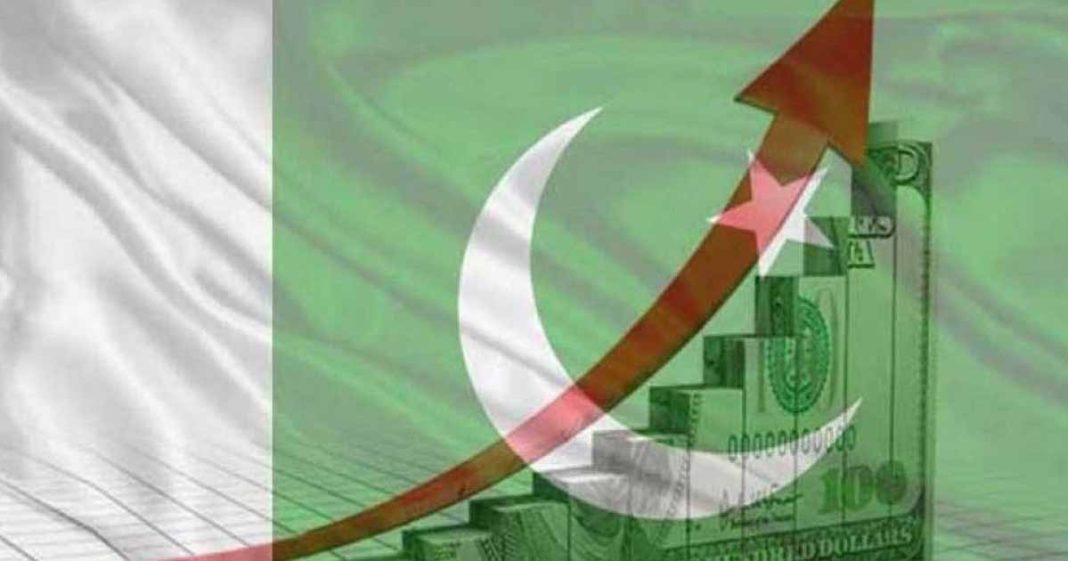Friday, 14 January 2022: PM Imran Khan launched a comprehensive National Security Policy, that incorporates foreign policy, infrastructure development, and technology. While not ignoring geopolitics, the policy emphasizes geo-economics. According to the document, strengthening the economy and achieving economic sustainability will be the pivot of Pakistan’s national security.
It talks of seeking peace with India for the next 100 years, i.e. up to a period well into the 22nd Century, without compromising on its stand on Jammu & Kashmir. The policy talks in broad terms, attempting to serve as a general guideline for the various organs of the state and the institutions involved in the national decision-making process. This article focuses on how to shift Pakistan’s National Security emphasis from geopolitics to geo-economics.
Read more: To save face, India shifts focus to QUAD alliances for geo-politics
According to the Pakistan Bureau of Statistics (2022)
“Agriculture constitutes the largest sector of our economy. The majority of the population, directly or indirectly, is dependent on this sector. It contributes about 24 percent of Gross Domestic Product (GDP), accounts for half of the employed labor force, and is the largest source of foreign exchange earnings. Agriculture feeds the whole rural and urban population (P.B.S.,2022)“
Despite agriculture accounting for almost one-fourth of its GDP, Pakistan is presently importing wheat, pulses, edible oils, sugar, and even cotton to meet the domestic demand. Presently, the economy is being held hostage to sugar, wheat, and fertilizer barons. Most sugar mill owners are politicians, and retired civil and army bureaucrats.
Wheat bread is the staple diet of Pakistanis. Wheat crop in Pakistan contributes 1.8 percent to the country’s GDP and accounts for 9.2 percent of the value-added in the agriculture sector. In 2020-21, wheat production was officially estimated at 27 million tons. Against the target, Pakistan produced nearly 25 million tons in 2021 and was set to import 3 million tons to ‘build strategic reserves (Saddler,2021). It is believed that the agricultural statistics provided by various government agencies should be taken with a pinch of salt.
Behind the cover of fudged statistics given by the agricultural department, every year millions of tons of wheat are smuggled to Afghanistan and the Central Asian republics, or hoarded by black marketers. If we take the 2020-21 statistics as the benchmark, nearly 3 million tons of wheat were smuggled/ hoarded by the black marketers during that period.
According to USDA, Pakistan’s sugar production for 2021-22 is forecast at 6.8 million metric tons (U.S.D.A, 2021) while the sugar consumption for the same year is forecast at 5.9 million metric tons, which means a surplus of around one million metric tons. If that be the case, why are there chronic sugar shortages in the country, resulting in whopping price hikes? It is because the surplus sugar is either exported (with subsidies to the exporters) or smuggled out.
Closely related to the cropping system is the growing scarcity of water in the country. Pakistan’s per capita water availability in 1947 was 5,600 cubic meters, which, in 2021, was reduced to 1,038 cubic meters, a 400 % decrease (Ali, 2021). Since the 1970s, no new water reservoirs have been built to cater to the increased food demand as a result of the increase in population.
Read more: COVID-19 will alter the geopolitics in the region
According to the population census carried out in 1972, Pakistan’s population, after the separation of East Pakistan, was 65,309 million, which has soared to 220 million in 2022 – a 366.66 % increase. Pakistan’s per capita water availability has declined by 400 percent from 5,600 cubic meters in 1947 to around 1,038 cubic meters in 2021(P.B.S,2022)
The textile industry, Pakistan’s largest foreign exchange earner till two decades ago, is now under severe competition even from a country like Bangladesh – a net cotton importer. This has happened because the past governments encouraged sugarcane cultivation at the expense of cotton and wheat cultivation.
Energy security is another factor that is causing economic stagnation
After the 1970s, no new major water reservoirs were built. Resultantly, power production during the 1990s was shifted from hydroelectricity to oil /gas-fired power stations. The majority of these power plants are operated by private companies which have, over the last three decades, strangled the country into circular debts. Ten new water reservoirs are under construction. However, it will take another decade for the situation to get normalized.
The ruthless misuse of natural gas during the last half a century, from utilizing this precious resource for electric power generation to the gasification of the transport system, has caused acute gas shortages. Natural gas reserves are depleting at the rate of 9% every year, forcing the country to resort to the import of exorbitantly expensive liquefied natural gas from foreign countries (A.N.I,2021).
To shift the emphasis on Pakistan’s national security from geopolitics to geo-economics, Pakistan’s economy will have to be re-engineered if we want to exist, not merely survive, as a strong and self-reliant nation. For this to happen, our overreliance on foreign remittances will have to be replaced by an economy based on value-added agricultural and industrial exports. If we start today, it will take at least a decade to restructure the economy and establish it on firm foundations.
Read more: India, Russia discuss defense, geopolitics during Lavrov’s two-day visit
For this to happen, we must look inward for most of the 21st Century and consolidate itself, even as the Japanese did after Commodore Perry blockaded Tokyo Bay on 8th July 1853. It was only after building up its industrial and military power that Japan defeated Russia in the Russo-Japanese War. Japan was defeated during WW2 because at that time America was the sole nuclear power.
Saleem Akhtar Malik is a Pakistan Army veteran who writes on national and international affairs, defense, military history, and military technology. He Tweets at @saleemakhtar53.
The views expressed in this article are the author’s own and do not necessarily reflect the editorial policy of Global Village Space.














